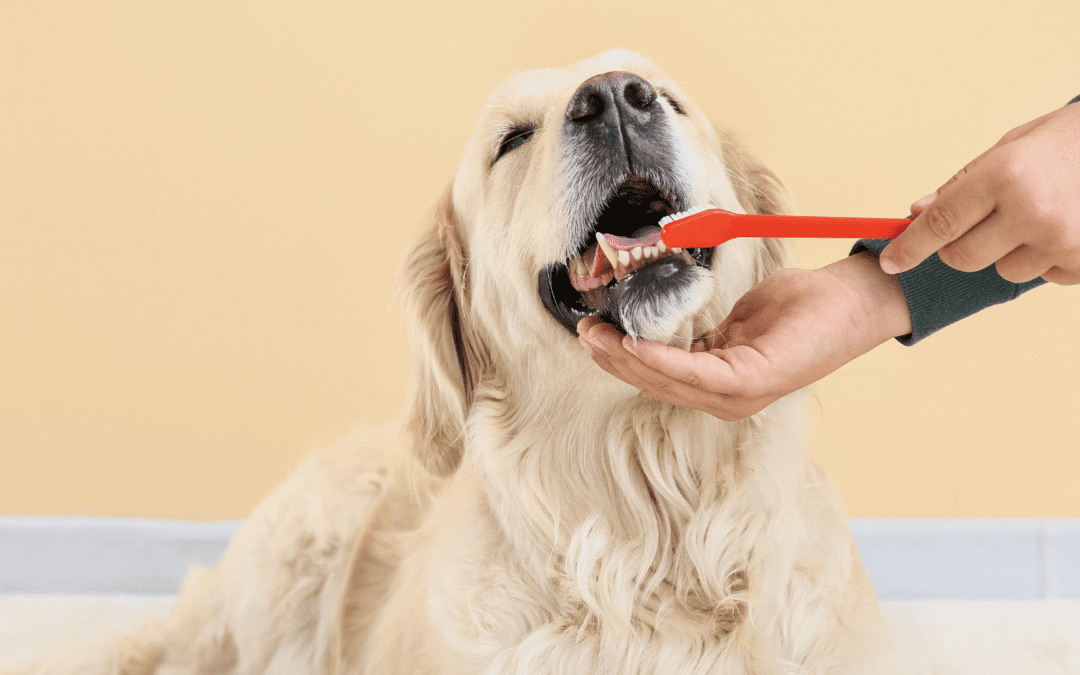Dental health is crucial to your pet’s overall well-being, yet many pet owners overlook this aspect of their care. Just like humans, pets are susceptible to various dental issues that, if left untreated, can cause significant discomfort and lead to more severe health problems.
Scheduling routine pet dental services is essential to keeping your furry buddy’s teeth and gums in optimal condition. In this article, the pet dentistry experts at Newport Mesa Animal Hospital explore the most common dental problems for cats & dogs and how to prevent them.
What are the Most Common Dental Problems for Dogs And Cats?
1. Periodontal Disease
2. Tooth Decay (Cavities)
3. Tooth Fractures
4. Gingivitis
5. Feline Odontoclastic Resorptive Lesions (FORLs)
6. Abscesses and Infections
Periodontal Disease
Periodontal disease is one of the most common dental problems in pets, especially in older cats and dogs. This condition starts as gingivitis (gum inflammation) and can progress into a more severe infection, eventually affecting the bones and tissues that support the teeth.
Signs of periodontal disease include:
-
- Bad Breath
- Red or Bleeding Gums
- Loose Teeth
Schedule regular vet exams and pet teeth cleaning services to reduce the risk of periodontal disease significantly.
Tooth Decay (Cavities)
Tooth decay is caused by plaque buildup, and can result in painful cavities. While less common in cats, dogs can develop cavities frequently, especially if they consume sugary treats.
Symptoms of tooth decay include:
-
- Sensitivity when eating
- Visible holes in the teeth
Provide your pet with dental chews designed to reduce plaque and book routine pet teeth cleaning services to prevent cavities.
Tooth Fractures
Pets can easily fracture their teeth by chewing on hard objects like bones or antlers. Large dog breeds and aggressive chewers are particularly at risk.
Fractured teeth are painful and can lead to infection. Signs of tooth fractures include:
-
- Drooling
- Refusing to eat
- Pawing at the mouth
If you notice any of these symptoms, contact your veterinarian for immediate pet dental services.
Gingivitis
Gingivitis is the early stage of gum disease and can often go unnoticed. Symptoms include:
-
- Swollen Gums
- Bleeding when chewing
- Bad Breath
Gingivitis is reversible with proper pet dental care, but if left untreated, it can progress into periodontal disease. Regular pet teeth cleaning services prevent gingivitis.
Feline Odontoclastic Resorptive Lesions (FORLs)
FORLs are a common and painful dental condition in cats where the tooth structure breaks down. This issue primarily affects older cats and can cause severe pain that makes it difficult for them to eat.
Symptoms include:
-
- Excessive Drooling
- Sensitivity when eating
- Visible tooth damage
Maintain a consistent schedule of cat wellness exams to detect and treat FORLs early.
Abscesses and Infections
Dental abscesses occur when bacteria enter the tooth root, causing a painful infection. Abscesses can result from untreated gum disease or a fractured tooth.
Common signs include:
-
- Swelling around the face
- Difficulty Eating
- Visible Pus
If you suspect your pet has an abscess, seek immediate pet dental services.
6 Proven Ways to Prevent Common Pet Dental Issues
1. Routine Dental Care
2. Daily Brushing
3. Dental Chews and Toys
4. Appropriate Diet for Dental Health
5. Regular At-Home Dental Checks
6. Avoiding Hard Chew Toys
Routine Dental Care
The most effective way to prevent dental issues is through regular pet dentistry. When conducted by a veterinarian, pet teeth cleaning services remove plaque and tartar buildup effectively. Include dental checkups in your dog wellness exam or cat wellness exam to ensure that your pet’s mouth stays healthy.
Daily Brushing
Brushing your pet’s teeth daily is one of the best ways to prevent plaque buildup. Start by using pet-safe toothpaste and a soft brush to gently clean their teeth. If possible, establish this routine early in their lives to make it easier for your pet to accept.
Dental Chews and Toys
Providing your pet with vet-approved dental chews and toys can help keep their teeth clean. These products are designed to reduce plaque and tartar while satisfying your pet’s natural urge to chew. Be sure to select the appropriate size and type of chew based on your pet’s breed and chewing habits.
Appropriate Diet for Dental Health
A balanced diet supports good dental health. There are even pet foods specifically formulated to reduce plaque and tartar. Speak with your veterinarian about the best food options to keep your pet’s teeth healthy.
Regular At-Home Dental Checks
In addition to professional pet dental services, you can perform at-home checks to monitor your pet’s dental health. Look for signs like discolored teeth, swollen gums, and bad breath. If you notice anything unusual, schedule a wellness exam for your dog or cat immediately.
Avoid Hard Chew Toys
Hard toys, bones, and antlers can cause tooth fractures. To avoid this, choose softer chew toys that are less likely to cause damage but still promote dental health.
Maintain Your Best Friend’s Healthy Teeth with Our Pet Dental Services
Your pet’s dental health is linked to their overall well-being. From preventing periodontal disease to addressing painful tooth fractures, regular pet dental care ensures that your furry friend remains happy and healthy.
Don’t wait until an issue arises — prevention is key. To schedule an exam with our pet dentistry experts, contact Newport Mesa Animal Hospital today.

